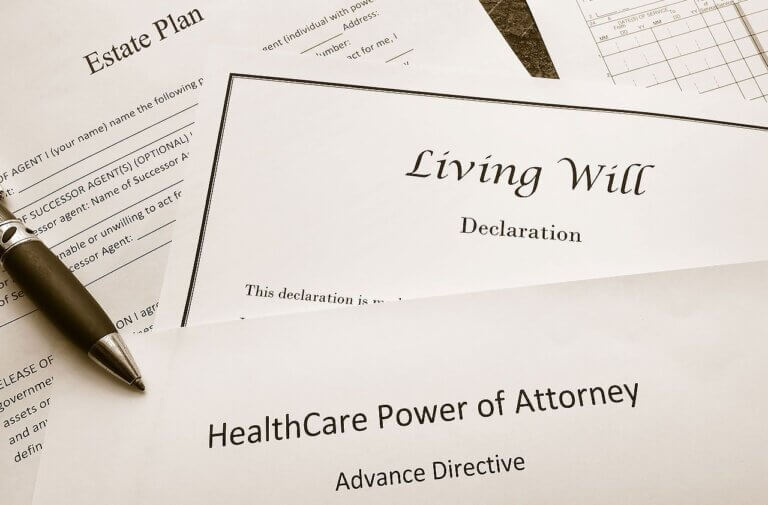Estate planning is more than just preparing for the future—it’s about ensuring your loved ones are protected and your wishes are honored, no matter what life brings.
Incorporating documents like medical directives, a Financial Power of Attorney (POA), and a Healthcare Power of Attorney (POA) into your estate plan is crucial for ensuring that your wishes are respected and that your affairs are managed according to your preferences.
Incapacity is often an overlooked area and can significantly impact your estate plan. In fact a good estate plan would address several key issues which we cover in detail below.
A solid estate plan ensures that your assets are managed and distributed according to your wishes, both during your life and after your passing.
Here’s an overview of key things that matter
1) Cover What You Own
- Inventory Your Assets: List all your assets, including real estate, bank accounts, investments, retirement accounts, life insurance policies, and personal property.
- Determine Ownership: Clarify whether assets are individually owned, jointly owned, or held in a trust.
2) Cover Large & Small Belongings
- Detailed Distribution: Specify who will receive significant assets like your home, vehicles, and valuable collectibles. Don’t overlook smaller items with sentimental value; these should also be clearly assigned to avoid disputes.
3) Have Updated Beneficiaries
- Review Beneficiary Designations: Ensure that all accounts with beneficiary designations (like retirement accounts and life insurance policies) are up-to-date. Life events like marriage, divorce, or the birth of a child can necessitate changes.
- Contingent Beneficiaries: Designate contingent beneficiaries in case your primary beneficiary predeceases you.
4) Title Accounts Correctly
- Joint Ownership and Payable on Death (POD) Accounts: Properly titling accounts can avoid probate and ensure a smooth transfer of assets. Consider joint ownership, transfer on death (TOD) or payable on death (POD) designations where appropriate.
- Trusts: For certain assets, consider transferring ownership to a trust to control the distribution and avoid probate.
5) Plan if You Become Incapacitated
- Include Medical Directives and Powers of Attorney: As mentioned before, make sure you have a Financial POA, Healthcare POA, and advance directives to manage your affairs if you’re unable to.
- Disability Insurance: Consider purchasing disability insurance to provide income if you become incapacitated.
6) Be Organized & Share
- Document Organization: Keep your estate planning documents organized and easily accessible. Make sure your executor and loved ones know where to find these documents.
- Communication: Share your estate plan with those involved, including your executor, trustees, and beneficiaries, so they understand your wishes.
These steps ensure that your estate plan is comprehensive, up-to-date, and aligned with your intentions, minimizing potential legal challenges and emotional stress for your loved ones.
Basics to establish as part of your Trust
1. Medical Directives
- Advance Directive (Living Will): Specifies your preferences for medical treatment in situations where you are unable to communicate your wishes, such as in cases of terminal illness or permanent unconsciousness. It guides your healthcare providers and loved ones in making decisions that align with your values.
- Do Not Resuscitate (DNR) Order: A specific type of advance directive that tells healthcare providers not to perform CPR if your heart stops or if you stop breathing.
2. Financial Power of Attorney (POA)
- A Financial POA designates a trusted individual (the agent) to manage your financial affairs if you become incapacitated. This can include paying bills, managing investments, filing taxes, and handling other financial transactions. You can customize the POA to be as broad or limited as you wish.
3. Healthcare Power of Attorney (POA)
- A Healthcare POA allows you to appoint someone to make medical decisions on your behalf if you’re unable to do so. This can include decisions about treatments, surgeries, medications, and long-term care. The person you choose should be someone who understands your wishes and is capable of making decisions under pressure.
Why Include These in Your Estate Plan?
- Protection: Ensures that your wishes are followed and that decisions are made by individuals you trust.
- Avoiding Court Involvement: Without these documents, your family might have to go through a lengthy and expensive court process to appoint a guardian or conservator.
- Peace of Mind: Knowing that your affairs are in order can provide peace of mind to you and your loved ones.
Would you like to dive deeper into how to establish a Trust, built backwards from your needs? Always consult a legally qualified person in matters of Trust and Estate. Explore F2ON Partner and schedule a call with Founding Principal and Estate Planning Attorney.
You should always consult your tax/legal advisor regarding your own specific tax/legal situation
Disclaimer: Nothing here should be considered an investment advice. All investment carry risks, including possible loss of principal and fluctuation in value. Finomenon Investments LLC cannot guarantee future financial results. You should always consult your tax/legal advisor regarding your own specific tax/legal situation
Image Credit: Images used are not created by Finomenon Investments, please share the source and author of the illustrator if you know to help give them credit.





